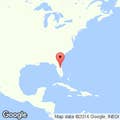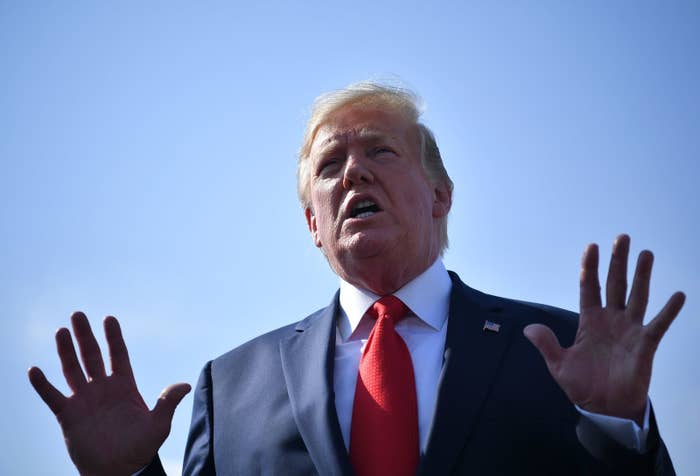
ORLANDO — After years of watching Venezuela deteriorate to the point where the entire country was plunged into literal darkness, Venezuelan Americans in Florida saw a glimmer of hope earlier this year when President Donald Trump recognized opposition leader Juan Guaidó as the country’s legitimate president and announced severe sanctions against the ruling Maduro regime.
But as the crisis there drags on and the Trump administration waffles on how to treat Venezuelan asylum-seekers in the US, some are beginning to lose confidence that change will come — and with it their willingness to side with Trump.
“I thought I was that person two months ago. If you had asked me two months ago, I would have said, ‘I agree with Trump, we need to support Guaidó.’ But now it’s like, he really hasn’t done anything,” said Samuel Vilchez Santiago, a registered Democrat who moved to the US from Venezuela with his family in 2010.
The Venezuelan community’s growing disenchantment with Trump could help swing a key state in 2020. There are some 300,000 Venezuelans in the US, and that number is growing as people flee the worsening instability. Their political power in Florida hinges not only on those who have been here for years and are able to vote — an estimated 120,000 nationally, according to Eduardo Gamarra, a professor of political science at Florida International University — but also on their influence on a much larger voting block, the Cuban American community, many of whom fled the socialist regime in Cuba, which is closely allied with those in power in Venezuela.
Though Latinos make up roughly 26% of the population in Florida, elections in the swing state have been decided by far less. In 2016, Trump won the state over Hillary Clinton by a margin of just 1.3%, or around 118,000 votes.
“The key to really understanding this is that it’s not settled at all, just like the Venezuela issue is not settled,” said Maurizio Passariello, a Miami-based Venezuelan American political operative who works mostly with Democrats. Passariello’s family arrived in the US when he was 12 years old in 1982, part of an earlier wave of Venezuelan immigration. “The Venezuelan community’s sympathies towards this administration, or the Republican Party, or the Democratic Party, is just not settled. It’s a moving target.”
Passariello added that he doesn’t think Trump’s handling of Venezuela could turn Cuban Americans who are Republicans into Democrats by and large, but that it could either improve or worsen their turnout for Trump in 2020.
Months after Trump and other international leaders recognized Guaidó, Nicolás Maduro is still clinging to power; Trump is toning down his rhetoric and reportedly getting increasingly frustrated with and tired of the country’s problems after Guaidó’s May attempt to overthrow the socialist regime failed. Trump mentioned the country only once in passing during his reelection launch in Orlando, where many Venezuelans fleeing the regime have settled in recent years. He now rarely tweets about the country, in stark contrast with his frequent, forceful criticisms of Maduro earlier this year.
“They’ve put in place sanctions against the regime in Venezuela but they haven’t taken action to directly benefit the Venezuelan community, neither there nor here. So what’s missing is less ‘blah blah’ and more action,” said William J. Diaz, founder of Orlando-based group Casa de Venezuela. “They’re creating hopes, and hopes, and hopes, but right now is the time for action and that’s what we need.”
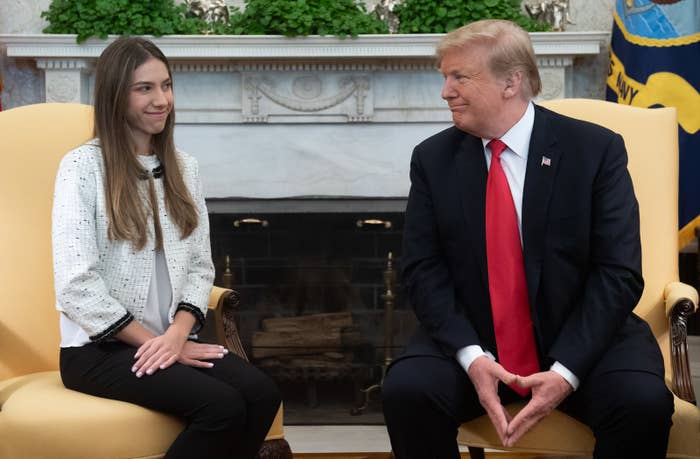
Democrats largely failed to address Venezuela at all while they were in Florida for the first presidential debates in June, a moment many Venezuelan Americans had hoped candidates would see as an opportunity to offer concrete plans of their own.
Republicans in Florida, carrying over a strategy from last year’s elections, have been focusing on the message that Democrats are pushing socialism, particularly backing that up by pointing to Sen. Bernie Sanders of Vermont and Rep. Alexandria Ocasio-Cortez of New York, both of whom describe themselves as democratic socialists.
In a February speech to Venezuelan community members in Miami, Trump repeatedly talked about the dangers of socialism — in Venezuela and Cuba, but clearly also taking a jab at Democrats in the US.
“To those who would try to impose socialism on the United States, we again deliver a very simple message: America will never be a socialist country,” he said.
Vice President Mike Pence and Republican Sens. Marco Rubio and Rick Scott have repeated that message in regular meetings with Venezuelan community activists in Miami, and they’ve traveled to Colombia to discuss the crisis with leaders there and meet Venezuelan refugees fleeing the regime.
Democrats who represent South and Central Florida in Congress, including Reps. Darren Soto, Debbie Mucarsel-Powell, Debbie Wasserman-Schultz, and Donna Shalala, have also been meeting with local Venezuelan leaders.
But, said Vilchez, in the absence of more consistent attention from Democrats on a national level, Trump has been “defining the issue, and when he defines the issue, what Democrats are going to have to do is respond to it.”
The increasing numbers of Venezuelans fleeing the Maduro regime and seeking asylum in the US have created a renewed sense of urgency for pathways for Venezuelans to remain in the States. Over the past two years, Venezuelans have become the largest group of asylum-seekers applying for refuge in the US, ahead of people from El Salvador, Honduras, Guatemala, and China. In January, the most recent month for which data is available, Venezuelans made up one-third of all asylum claims filed with US Citizenship and Immigration Services. Venezuelans, like many asylum-seekers, often have to wait years for interviews and their cases to be heard — the number of applications far outpacing the rate at which immigration courts are able to make decisions. According to Syracuse University’s TRAC Immigration Project, 372 Venezuelans have been given a decision on their asylum claims this fiscal year so far. Of those, about a third, 130 people, had their asylum requests denied. In 2018, 134 claims were granted and 113 were denied. More than 85,000 Venezuelans have sought asylum in the US between 2014 and 2018, according to the UN refugee agency, about a quarter of those coming just in 2018.
Trump has had shifting positions on offering temporary protected status to Venezuelan asylum-seekers, worrying progressive Venezuelans who were once optimistic about the administration’s actions. A group of House Democrats, joined by two Republicans, introduced a bill granting TPS to Venezuelans in the House in January, headed by Soto, who represents a district in Central Florida that includes Orlando. A bipartisan group of senators introduced a companion bill in February, but it’s not clear if it will pass the Senate — and Trump has gone back and forth on whether he would support it if it reaches his desk. Asked by reporters about TPS for Venezuelans last month, Trump said his administration was “looking at that very seriously.”
“The Venezuelan crisis is ever-changing day by day, minute by minute, so whether it’s the Trump administration or the Dems, what we need as a community is for both parties to follow the lead of the Venezuelan opposition … while also supporting the thousands of refugees that are here. And that’s where the time has run out for the Trump administration,” said Liz Alarcón, a Venezuelan American Democrat and activist.
Some Venezuelan Americans continue to be staunch supporters of Trump regardless of the uncertainty around TPS and the administration’s other anti-immigrant policies — partly because they were Republicans to begin with, and because they say they felt completely abandoned by the Obama administration, which imposed some minor sanctions on Venezuelan officials but did not engage with what’s happening in the country the way Trump has.
“What he is doing for Venezuela, we didn’t have even 1% of that with Obama,” said Ernesto Ackerman, 68, who has been in Miami since he left Caracas in the late 1980s.
Ackerman, who heads the Miami chapter of the conservative Independent Venezuelan-American Citizens, said moves like a March letter from progressive House Democrats criticizing the administration’s “broad unilateral sanctions and threats of military action” make Venezuelans feel like Democrats don’t understand that the dictatorship cannot be expected to negotiate on reasonable terms.
“It’s very funny to see now all these Democrats in Congress talking about Venezuela and TPS and, you know, trying to wash their faces,” Ackerman said. “I think it’s too late, after 10 years doing nothing. It’s too late.”
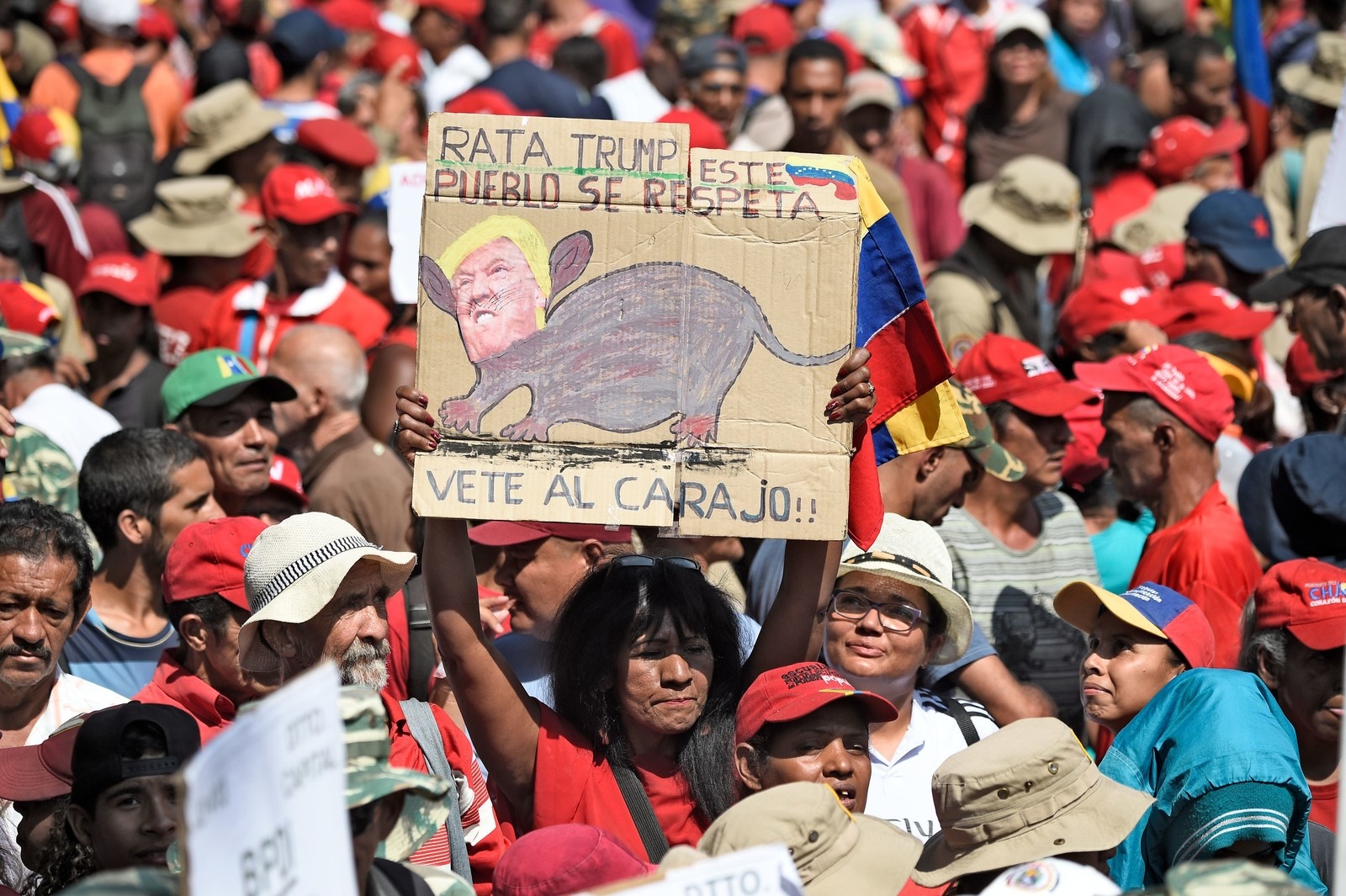
Trump, after imposing stricter sanctions on the regime, told a crowd in Miami in February that “all options are on the table” when it comes to ousting the Maduro regime, implying that the US could back a military intervention at some point.
Vilchez saw that as an example of the “irresponsible” handling of the crisis by the Trump administration — raising an ominous possibility without elaborating on what that would look like, especially in a region of the world with a fraught history with US military interventions. Others, like Ackerman, saw it as a sign that Trump could be willing to take whatever action is necessary to oust Maduro.
Venezuelan Trump supporter Waleska Rojas gathered a group of about 10 other supporters to attend Trump’s reelection launch in Orlando, carrying signs that read “Make Venezuela Great Again.”
“I support the Republican Party and I like the ideas that [Trump] has,” said Rojas, who has been in Florida for five years. Rojas is waiting for her asylum claim to be processed, and hopes to eventually become a US citizen.
She said she doesn’t want TPS for Venezuelans because she sees it as a measure that undermines the immigration system, and added that she supports the president’s calls for a wall on the border with Mexico and the administration’s crackdown on undocumented people, including the ICE raids the president has threatened in recent weeks.
“Some people don’t like the way he talks about immigrants. I am an immigrant. If you have your home, you don’t want everybody to come to your home,” she said. “You want good people who can follow the rules.”
Others said they don’t agree with Trump’s attacks on other groups of immigrants, but that they think the administration’s attitude toward Venezuelans is different.
“We feel protected by the Trump administration,” said Kennedy Bolivar, 30, speaking at a café in the Miami suburb of Doral, where a sizable Venezuelan community has grown in recent years. At the same time, he said, “I don’t agree with some of his immigration policies, I’ll never agree with policies that discriminate against immigrants because I am an immigrant.”
Bolivar, who also has a pending claim for asylum, said he thinks the administration needs to find a way to reform the immigration system to allow more people into the US, but that the root cause of seeking asylum in the US — instability in Venezuela and Central America — needs to be resolved by the governments there.
He heads another conservative Venezuelan American group, Movere, which has around 50 members scattered around the US. Another member of the group, Yeraldin Vargas, said she supports Trump because of his rhetoric on Venezuela, but also because she’s socially conservative and likes what Republicans are doing more broadly.
Bolivar said Scott meets with him and other local leaders almost every other week — and was eager to show several photos of his meetings with the senator and one with Brad Parscale, Trump’s 2020 campaign manager.
Ackerman, Bolivar, and other Venezuelan leaders were also at the Miami meeting where Pence launched the reelection campaign’s Latino voter outreach program. But Helene Villalonga, who came to the US in 2000 and became a citizen two years ago, said she no longer supports those meetings because she thinks it’s clear that they’re about political posturing, not coming up with actual solutions for Venezuelans in the US.
Villalonga, president of a group called AMAVEX (Association of Venezuelan Mothers and Women Abroad), is registered as an independent voter, and she said that she’s seen the efforts from members of Congress on both sides to introduce TPS and work on other immigration measures to help immigrants over the years, but has grown increasingly wary of politicians using the crisis just as long as it’s useful as part of their campaigns.
“Don’t see us as part of an electoral campaign, see us as human beings,” Villalonga said. “See Venezuela with a human eye and give it a solution it deserves so it does not become a problem for the US.”
She said that at one recent meeting she attended with Pence, he was asked about whether the administration will push for TPS for Venezuelans.
“He said he hopes the situation in Venezuela will improve so that everyone can return soon,” she said. “In those few words it was clear that the possibility to resolve Venezuelan immigrants’ problems here doesn’t exist. President Trump is always saying he wants to help, he wants to help, but he doesn’t want to deal with protecting Venezuelans in the US.”
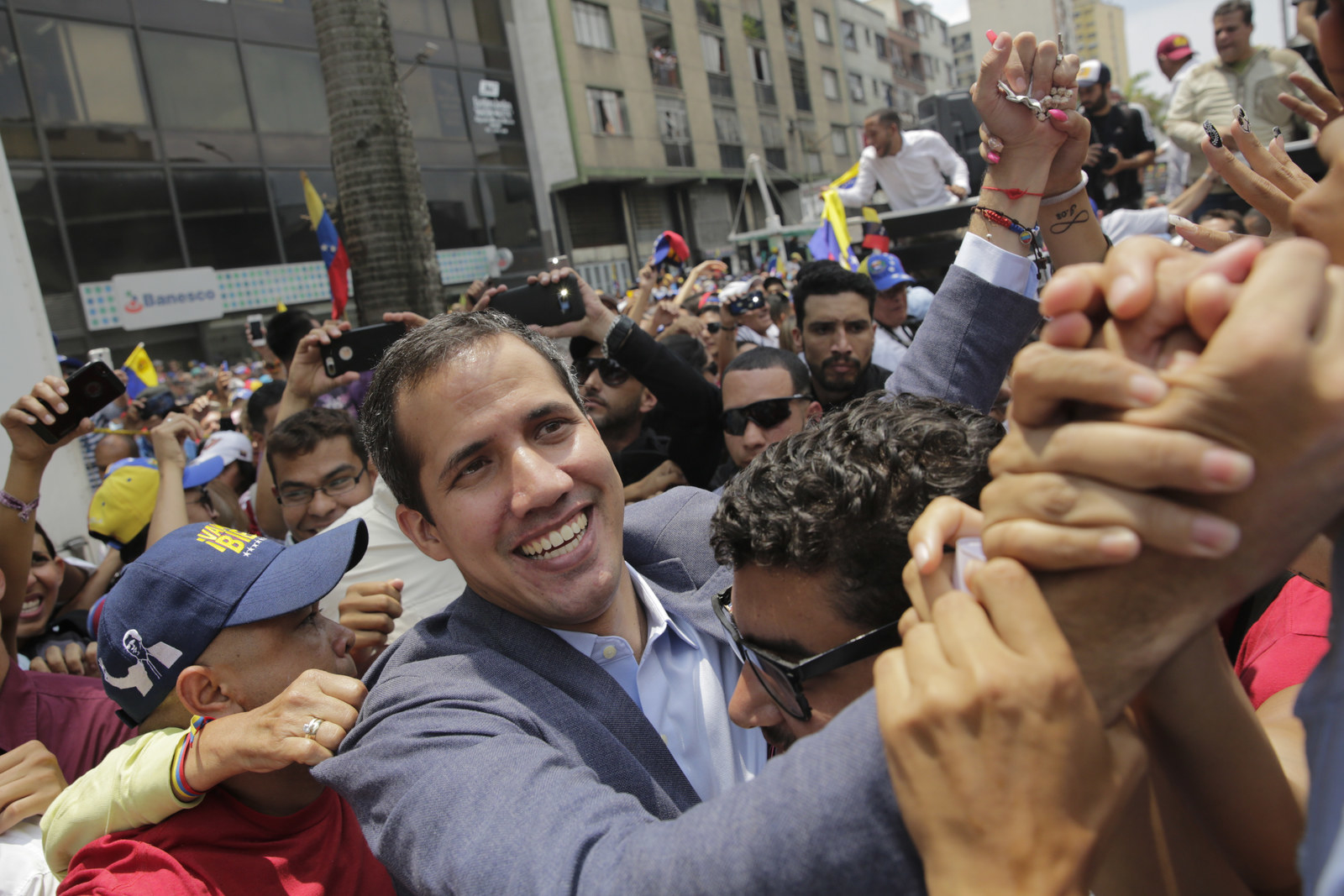
Democrats are more explicitly competing for Venezuelans in Florida now, and criticizing Trump for how he’s handled the regime and the country’s asylum-seekers. Former vice president Joe Biden said in a Miami Herald op-ed that Trump “badly misjudged” the situation in the country, while touting his own role in the region during the Obama administration. Sen. Kamala Harris and former Housing secretary Julián Castro have labeled Maduro a dictator and called for TPS protections for Venezuelans. Beto O’Rourke in late June told a Venezuelan American woman protesting outside an immigration detention center in South Florida that he also supports TPS, and that the US needs to do more to improve the situation in Venezuela without military action.
“Florida is very important for [Republicans] and they want to get the votes of new Venezuelans like me. But I don’t believe them,” Johani Carolina Ponce, the woman who questioned O’Rourke, said later. “I would tell other Venezuelans not to believe these stories, not to believe these lies. They’re not going to do anything, what they want is votes. All they want is to show up to Venezuelan restaurants with Venezuelan flags as Marco Rubio and Scott do to try to collect votes.”
“They’re not going to do anything, absolutely. People hope for a military intervention. They’re not going to do it,” she said.
“It is clear that Trump sees opportunity with Latinx voters in Florida. Trump doesn’t need to win the Latinx vote outright, he just needs to shave enough votes off the margins in Florida to let his base carry him over the top,” said Stephanie Valencia, a former Obama administration staffer and the founder of Equis Labs, a Latino political engagement group. “And, sadly, with the early investment he is making there to try to spread mistruth about socialism and other issues, he can. Democrats and progressives should be very alarmed and doing a lot more now to counter before it’s too late.”
Venezuela’s crisis has not been a major talking point for most Democrats running for president, even as they spent time in Florida during the first round of primary debates, and as the Florida Democratic Party prepared a primer on Venezuela for them and encouraged them to address the country. Venezuela did not come up on either night of the debates in Miami, though candidates were asked about both immigration and foreign policy. “That’s kind of one of the things that we have been pushing about, because presidential candidates have the highest platform, so we should use that in our favor,” said Luisana Perez, Hispanic press secretary for the state Democratic Party, who was born and raised in Caracas.
Rep. Soto said he hopes that Democrats running for president will start talking more about Venezuela, keeping in mind how crucial Florida can be in 2020.
“I think as the campaigns plod on you’ll see more discussion of it because it is a huge issue here in Florida,” Soto said.
“Certainly I’d encourage them to start now but I don’t control our presidential candidates so they have to make their own decisions,” he said. “But I will lead by action and you will see the Democratic House pass this [TPS] bill over the next month or two, and that will be a big statement.”

